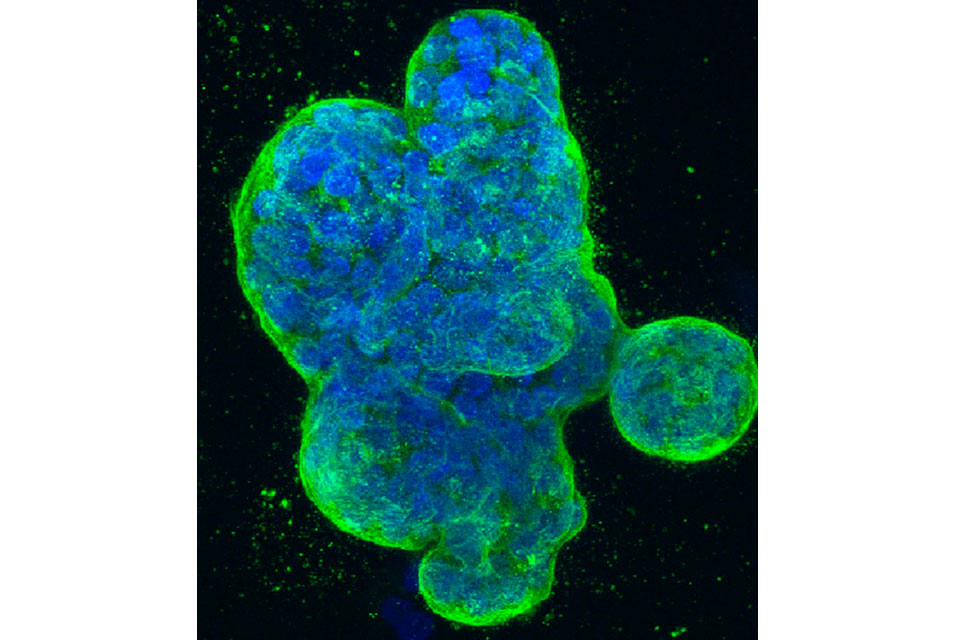BATON ROUGE, LA.- Research led by Suresh Alahari, Ph.D., Professor of Biochemistry at
LSU Health New Orleans schools of Medicine and Graduate Studies, suggests a combination of drugs already approved by the FDA for other cancers may be effective in treating chemo-resistant triple-negative breast cancer. The results were published in Molecular Cancer.
Triple-negative breast cancer (TNBC) tumors lack estrogen receptors, progesterone receptors, and human epidermal growth factor receptor 2 (HER2). A subtype representing 12-55% of triple-negative breast cancer tumors has androgen receptors (AR). Since androgen receptors stimulate tumor cell progression in estrogen receptor-negative breast cancers, they have become a target of triple-negative breast cancer therapy. As well, since a substantial number of patients with triple-negative breast cancer develop resistance to paclitaxel, the FDA-approved chemotherapeutic agent for triple-negative breast cancer, new therapeutic approaches are needed.
Working in a mouse model and tissue from patients with triple-negative breast cancer, the research team screened 133 FDA-approved drugs that have a therapeutic effect against androgen receptor cells. They found that ceritinib, an FDA-approved drug for lung cancers, efficiently inhibited the growth of androgen receptor triple-negative breast cancer cells. To improve the response, they also selected enzalutamide, an FDA-approved androgen receptor antagonist for prostate cancer treatment.
"We designed a novel combinational strategy comprising enzalutamide and ceritinib to treat AR+ TNBC tumors through the dual blockade of androgen-dependent and androgen-independent AR signaling pathways," notes Dr. Alahari.
They found that the combination of ceritinib and enzalutamide showed a robust inhibitory effect on the growth of AR+ TNBC cells. They also tested a combination of paclitaxel and ceritinib.
"The combination of paclitaxel and ceritinib showed drastic inhibition of tumor growth compared to a single drug alone," Alahari adds. "All agents used in our study are FDA-approved, and thus the proposed combination therapy will likely be useful in the clinic."
Triple-negative breast cancer is more prevalent in younger women, those of African and Hispanic descent, and carriers of deleterious germline mutations in the breast cancer susceptibility genes. This aggressive type accounts for 15–20% of all breast cancers.
LSU Health New Orleans co-authors included Shengli Dong, Hassan Yousefi and Samuel C. Okpechi. The team also included Isabella Van Savage, Maryl K. Wright, Bridgette M. Collins-Burow, Matthew E Burow from Tulane University, and Margarite D. Matossian from the University of Chicago.









